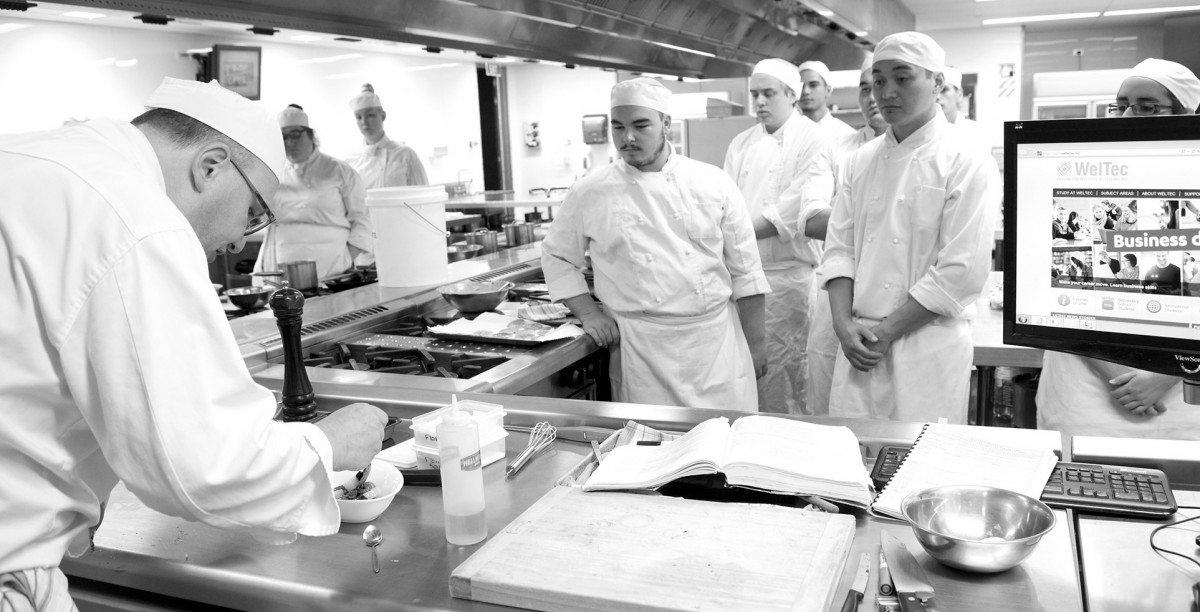Tertiary education – preparing New Zealanders for the jobs of today and tomorrow
Tertiary education – preparing New Zealanders for the jobs of today and tomorrow
This is an opinion piece from Tim Fowler, Chief Executive of the Tertiary Education Commission (the TEC).
This is an opinion piece from Tim Fowler, Chief Executive of the Tertiary Education Commission (the TEC).
As the Chief Executive of the TEC I’m proud of our role to invest in and champion tertiary education in New Zealand.
Traditionally, people think of tertiary education as letters behind their name − diplomas, degrees, and at the highest level, PHDs. But it is much broader than that. Tertiary education is apprenticeships, it’s micro-credentials and things like programmes offered by ICT grad schools that provide a vital link between tertiary education and the fast-moving hi-tech industries looking to hire skilled staff.
Tertiary education, like our country’s greatest businesses, is evolving with the times and actively preparing New Zealanders for both today’s jobs and the future world of work. The sector knows that jobs are continuously changing and that means equipping our next generation with the knowledge, skills and adaptability they need to be employable in our growing industries.
The three innovative micro-credentials that the New Zealand Qualifications Authority kicked off this year are testament to the agility of tertiary education to meet the needs of lifelong learners. There is great potential in micro-credentials to offer options for New Zealanders to re-skill across multiple careers and for those seeking to balance learning with their employment. I see micro-credentials as part of our expanding future tertiary education landscape - offering flexible, highly relevant lifelong learning accessible to us all.
Tertiary education also prepares highly skilled workers to meet the needs of employers. Our country’s 43,000 apprentices are an example of Kiwis gaining a qualification on the job, giving them an opportunity to bring their skills to business and contribute to growing our economy. Employers can really lead the way with on-the-job training − enabling Kiwis to learn while they earn and reach their career aspirations.
Landing a job is always a success. With the changing nature of work and exponential movement in technology, whether a person enters a job with a formal qualification or not, there will always be opportunities for on-the-job learning and re-skilling.
It really isn’t a case of one qualification for life anymore. Talented school leavers, people re-entering the workforce, entrepreneurs and career changers without qualifications can gain skills on the job that will build on their current success.
Re-skilling and re-training will play a big role in ensuring the continued success of all New Zealanders by making them adaptable, resilient, and agile to meet the needs of employers.
Another thing that will become the new normal is the need to hone strong employability skills. Craig Hudson from Xero and 100 businesses recently endorsed the value of hiring people with these skills. The Employability Skills Framework was developed by employer and industry representatives, educators, government agencies, and industry training representatives for this very purpose – to promote the skills and capabilities needed for work. This is something we believe in and have highlighted in Māia – our recent video series with successful Māori businesses to illustrate the employability skills that employers really value from job seekers in the modern workplace.
Tertiary education, in whatever form it takes, is vitally important to the future of New Zealand. It drives better economic, social, and cultural outcomes, creates new knowledge and helps the country’s productivity. And, because tertiary education is lifelong, all New Zealanders and employers can benefit from it.
I’m heartened by the work the Strategic Insight’s Panel have done this far. We need a collective, collaborative and concentrated focus on improving outcomes for New Zealanders and indeed New Zealand. I hope to meet soon with Panel members to establish how we can tackle this problem together.
Tim Fowler
